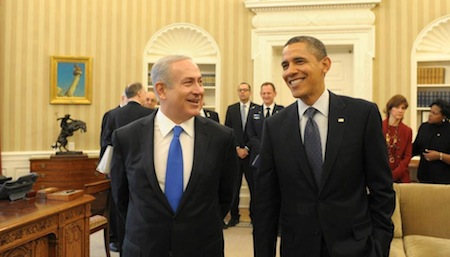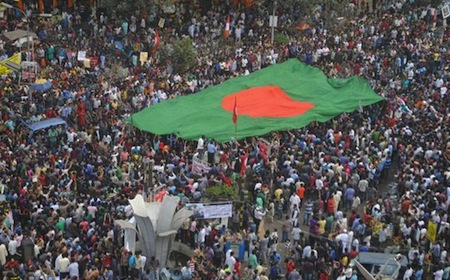With word that Tzipi Livni, former foreign minister and leader of Hatnuah (התנועה, ‘The Movement’), will become the first major figure to join prime minister Benjamin Netanyahu’s governing coalition for a third term in office, nearly a month after Israel’s legislative elections, we’ve reached a new critical phase of the coalition-building process.![]()
Livni will not only serve as justice minister in the new government, according to the agreement with Netanyahu, but will also be the government’s exclusive negotiator for any peace talks with the Palestinians. Her party, Hatnuah, will also receive another cabinet position, most likely environmental protection.
Netanyahu has until mid-March to form a government, six weeks from the date when Israeli president Shimon Peres invited him to form a coalition. Although Netanyahu may be granted a 14-day extension, the pressure is now on to form a broad-based government, even though Netanyahu’s own Likud (הַלִּכּוּד, ‘The Consolidation’) holds just 20 seats in the Knesset (הכנסת), Israel’s 120-member unicameral parliament.
With his electoral coalition partners, the secular nationalist Yisrael Beiteinu (ישראל ביתנו, ‘Israel is Our Home’) of former foreign minister Avigdor Lieberman, ‘Likud-Beiteinu’ holds 31 seats, so even the merged coalition is likely to be a minority within the larger governing coalition.
Hatnuah, which includes Amir Peretz, former leader of the Labor Party (מפלגת העבודה הישראלית), and defense minister from 2006 to 2007, and Amram Mitzna, also briefly a former leader of Labor (from 2002 to 2003) and former mayor of Haifa, won only six seats in the election, so Netanyahu has a long way to go. But by bringing Hatnuah into the fold, and by giving it two portfolios,‡ Netanyahu is signaling that it’s more important to have Livni within government than outside it.
It’s somewhat surprising to see Hatnuah become the first party to join forces with Netanyahu after January’s elections, given Livni’s steadfast opposition to joining a Netanyahu-led coalition four years ago.
Livni led the centrist Kadima (קדימה, ‘Forward’) in the previous 2009 elections, and she managed to win 28 seats to just 27 for Likud. Livni, however, couldn’t find enough partners to form a coalition and when she refused to join Netanyahu’s coalition, Netanyahu found more willing allies in Lieberman and former prime minister Ehud Barak, then the leader of Labor.
Kadima, in opposition for three years and declining in the polls, dumped Livni as leader in March 2012. She promptly resigned from the Knesset, only to return to politics in advance of the 2013 elections with her new party, Hatnuah.
So where does the Netanyahu coalition go from here?
Here are four things that the Livni-Netanyahu alliance signals to us about the next Israeli government: Continue reading Four things that the Netanyahu-Livni deal tells us about Israel’s next government


